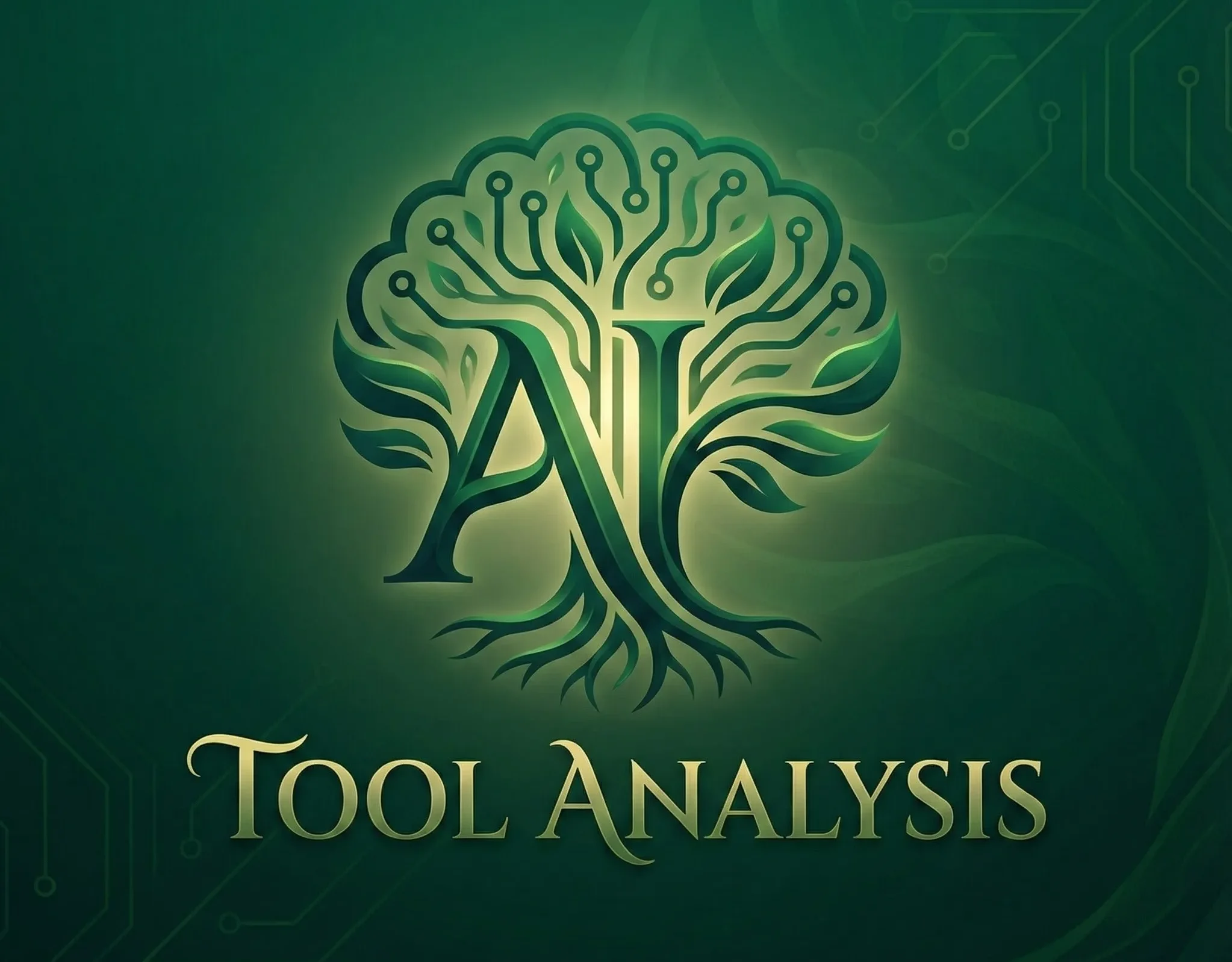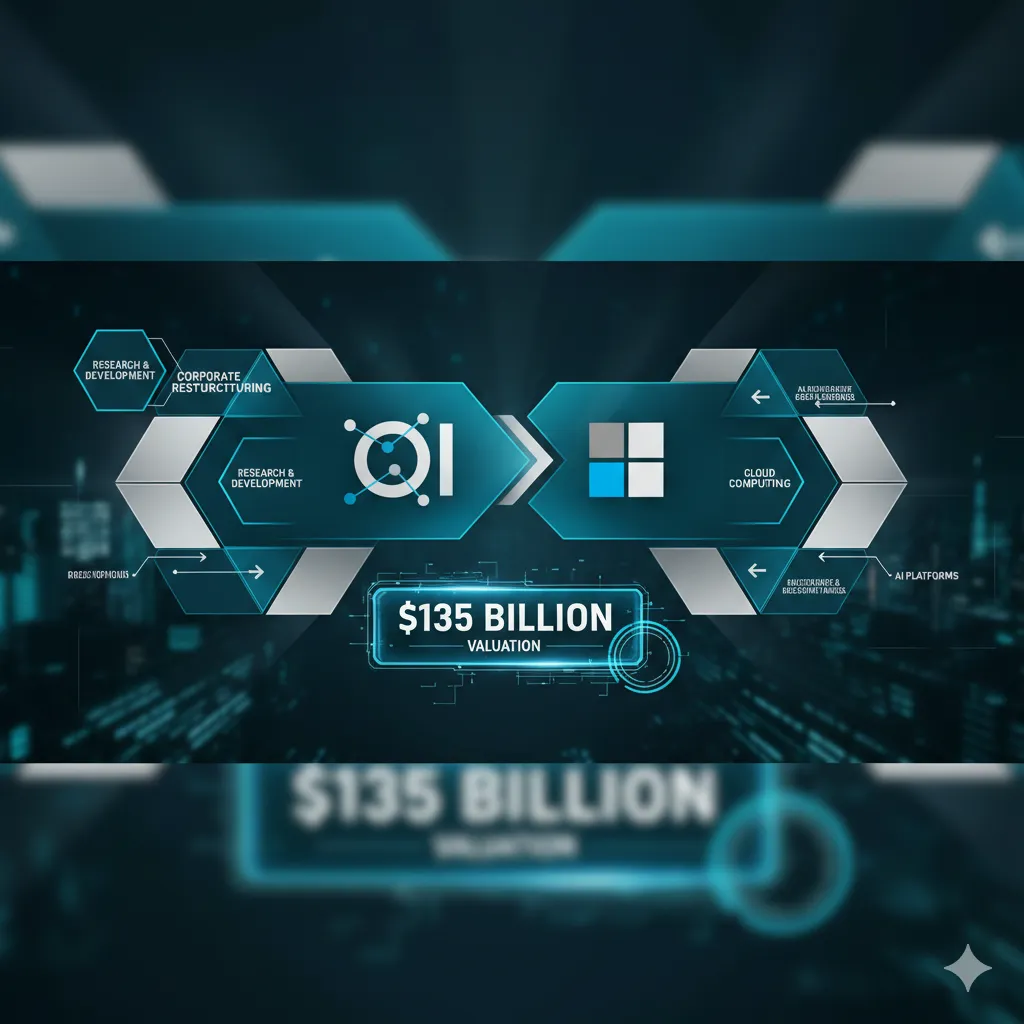Reading time: 5 minutes | Week of October 23-29, 2025
Welcome to Our AI News Weekly, October 30, 2025 Edition
The ONE Thing You Need to Know
OpenAI just completed its most dramatic transformation yet – converting to for-profit status with Microsoft securing a 27% stake valued at $135 billion. This isn’t just paperwork; it’s a seismic shift in AI power dynamics that ended a year of uncertainty. Meanwhile, Anthropic launched Claude inside Excel, Microsoft gave Copilot a personality with the Mico avatar, and California became the first state to create private lawsuits against dangerous AI chatbots. Translation: The AI industry just restructured its foundation while simultaneously embedding deeper into your daily tools. This week wasn’t about flashy new features – it was about who owns what and where AI lives next.
- The ONE Thing You Need to Know 2 min→
- Quick Wins: Available Now 3 min→
- Deep Dive: OpenAI’s For-Profit Pivot 5 min→
- Price Drops & Free Stuff 2 min→
- Coming Soon: Mark Your Calendar 2 min→
- Events Worth Your Time 2 min→
- Skip This: Overhyped News 2 min→
- Community Pulse 3 min→
- Next Week: What to Watch 2 min→
- This Week’s Bottom Line 2 min→
Quick Wins: Available Now
Copilot Vision Goes Text-Based 🔥
Windows Insiders can now use Copilot Vision with text input instead of voice-only. Share any app or screen, type questions, and get written responses analyzing what you’re seeing. Previously required awkward voice conversations.
Reality check: Only available to Insiders currently. The feature works well for basic screen analysis but occasionally misinterprets complex UIs.
Try it: Windows Insider Program → Update Copilot app → Click glasses icon → Toggle off “Start with voice”
Claude for Excel (Beta) 📅
Financial professionals can now run Claude directly in Excel’s sidebar. The AI reads, analyzes, and modifies workbooks while explaining every change. Particularly strong at debugging formulas and building financial models.
Reality check: Currently limited to Claude for Financial Services subscribers. Beta means occasional bugs and slower performance during market hours.
Try it: Available through Claude for Financial Services subscription (contact Anthropic sales)
Copilot Connectors Expand 📅
Copilot on Windows now connects to OneDrive, Outlook, Gmail, Google Drive, Google Calendar, and Google Contacts. Natural language search across all connected accounts makes finding scattered information trivial.
Reality check: Rolling out gradually to Insiders. Initial release focuses on search only – no direct editing yet. You’ll need to manually enable each connection.
Try it: Copilot Settings → Connectors section → Enable desired services
Price Drops & Free Stuff
This week was surprisingly quiet on pricing changes. The major story was organizational restructuring rather than cost adjustments. However, worth noting:
- Copilot’s new features: All rolling out to existing subscribers at no additional cost. The Mico avatar, group chats, and Vision improvements are free upgrades to current plans.
- Claude Haiku 4.5 pricing: Launched at $1/$5 per million tokens (input/output) – significantly cheaper than Claude Sonnet 4.5 while delivering near-frontier performance. Potentially saves developers 66% on AI costs for suitable workloads.
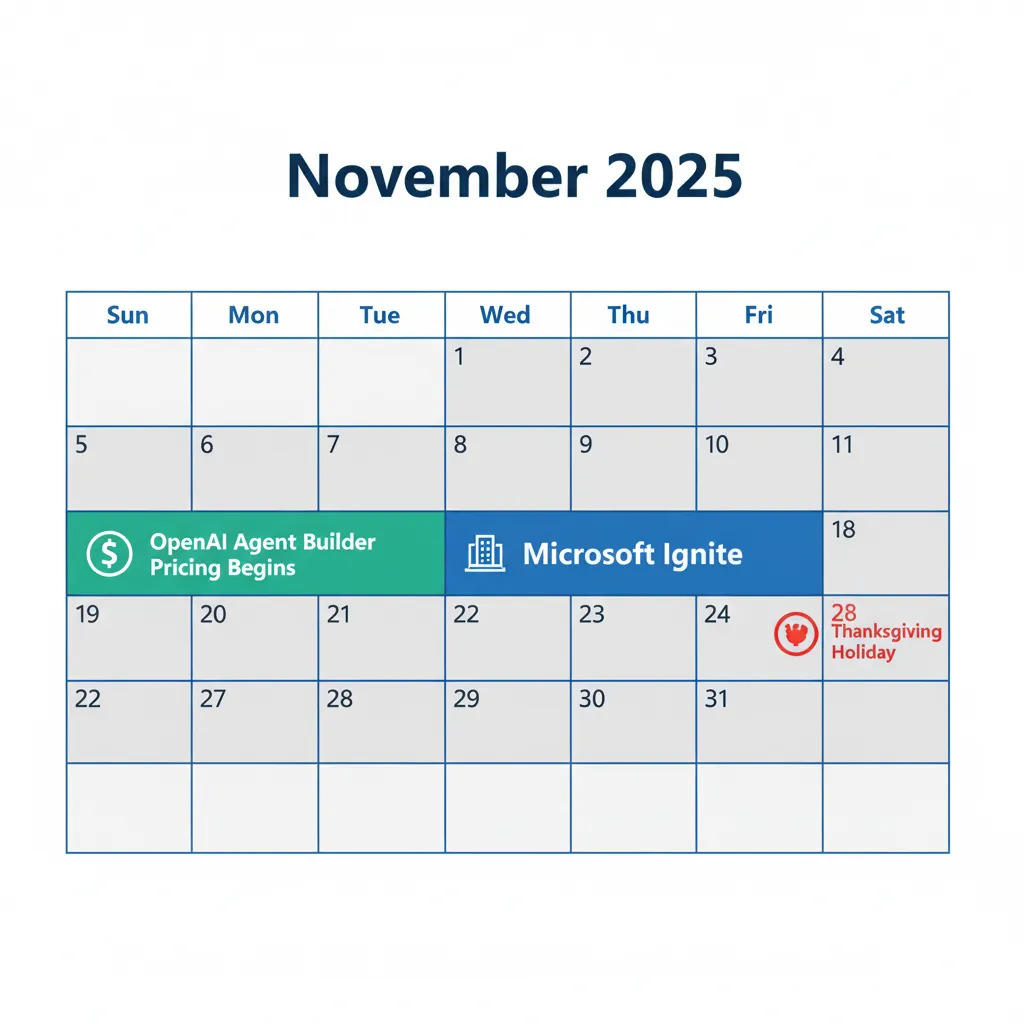
Coming Soon: Mark Your Calendar
November 2026 (Expected): GM vehicles to get Google Gemini AI assistant. The rollout starts with 2016+ model years receiving over-the-air updates. GM claims the AI will anticipate needs, offer maintenance alerts, and explain features like one-pedal driving.
Q1 2026: Anthropic’s Seoul office opening. South Korea becomes the third Asia-Pacific hub following Tokyo and Bengaluru, reflecting the country’s ranking in top 5 globally for Claude usage.
2028 (Cadillac Escalade IQ): GM’s upgraded driver-assistance system featuring “eyes-off” driving technology. The system allows hands-free, eyes-off-road driving while maintaining ability to retake control.
Note: Gemini 3.0 was rumored for October 22 based on leaked internal documents, but no official announcement materialized. Google has not confirmed any launch timeline.
Events Worth Your Time
Filtering strictly to 2-3 genuinely valuable events this week. Most “webinars” this period were product pitches disguised as education.
TechCrunch Disrupt 2025 – October 27-29
📍 San Francisco | 💰 $595-$2,995 | ⏱️ 3 days
Why go: Hands-on demos with OpenAI’s Agent Builder platform, live coding sessions with AI tools, and networking with 10,000+ developers and founders. Sam Altman typically makes unannounced appearances.
Register: TechCrunch Disrupt registration (Event already in progress)
Microsoft Ignite 2025 – November 18-22
📍 Chicago + Virtual | 💰 Free (virtual), $2,395 (in-person) | ⏱️ 5 days
Why go: Deep dives into Copilot Studio agent development, Azure AI infrastructure workshops, and early access to enterprise AI features. Microsoft typically announces major Copilot updates here.
Register: Microsoft Ignite 2025 (Deadline: November 10)
The 2-Minute Breakdown
OpenAI Completes For-Profit Restructuring, Microsoft Gets 27% Stake 🔥
OpenAI finalized its conversion to for-profit status Tuesday, with Microsoft securing a 27% equity stake valued at $135 billion. The deal includes guaranteed access to OpenAI’s models through 2032, including those achieving AGI (verified by independent experts). OpenAI agreed to purchase $250 billion in Azure services while Microsoft ceded their right of first refusal on future cloud deals. The OpenAI Foundation retains a 26% stake.
Why it matters for your work: This ends a year of uncertainty about OpenAI’s structure and Microsoft’s role. The Azure commitment signals massive infrastructure investment benefiting all API users through improved reliability and speed. For enterprise customers, the 2032 model access guarantee provides planning certainty.
Reality check: While marketed as “removing uncertainty,” this creates new dependencies. OpenAI projects losing $8 billion in 2025 and expects to burn $115 billion through 2029 – roughly $80 billion more than previous estimates. Enterprise users should diversify their AI vendor strategies rather than betting solely on OpenAI’s long-term stability. Delaware and California attorneys general approved the restructuring after extensive review, suggesting the nonprofit protections are legitimate.
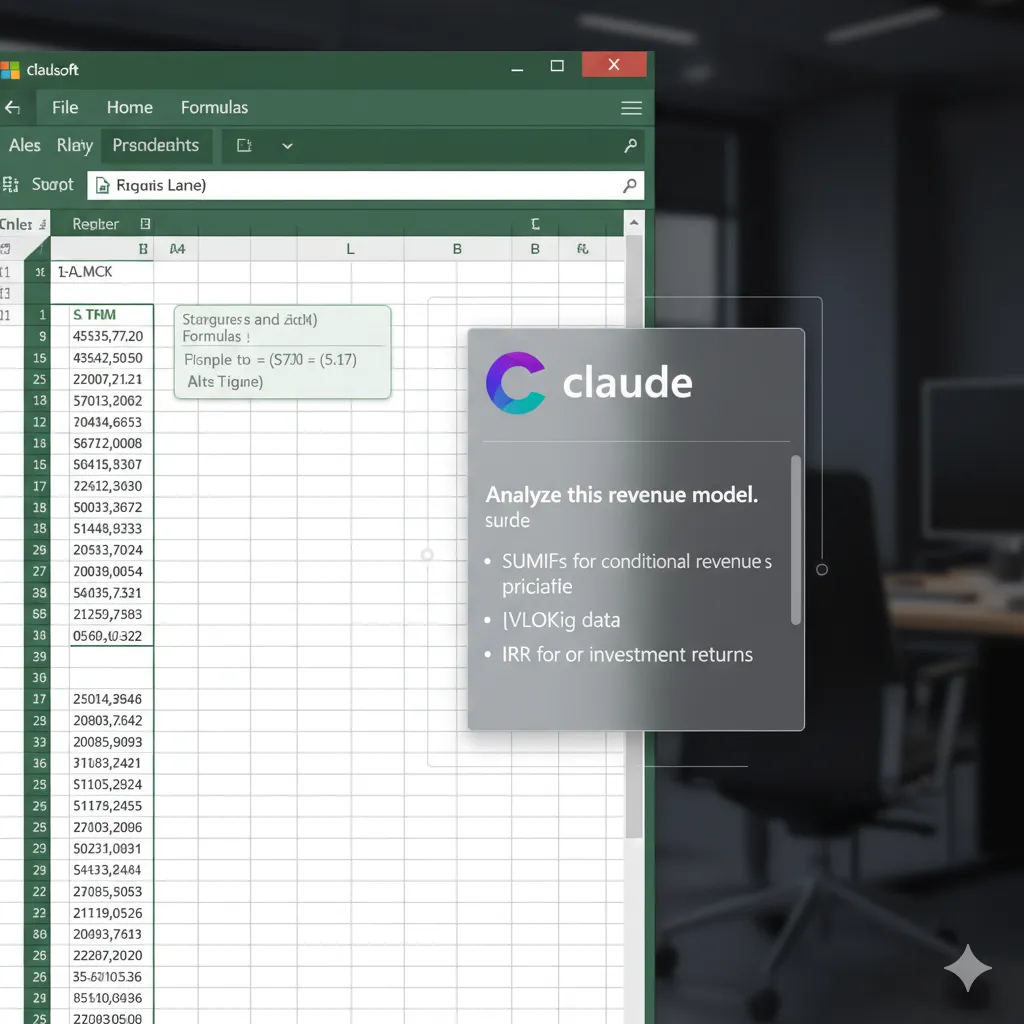
Claude Launches Inside Excel, Targets Wall Street 🔥
Anthropic expanded Claude for Financial Services with an Excel add-in (beta) and six pre-built Agent Skills for finance professionals. The sidebar integration lets Claude read, analyze, and modify workbooks while tracking every change transparently. Skills include building discounted cash flow models, conducting due diligence, and generating company profiles.
Why it matters: Excel remains the primary tool for financial analysis, and Claude’s integration goes deeper than competitors. The focus on explainability (showing all formula changes) addresses finance’s core requirement: audit trails. With integrations to Aiera (earnings calls), LSEG (market data), and Moody’s (credit ratings), Claude becomes a genuine analysis co-pilot rather than just a glorified autocomplete.
Reality check: Currently limited to Claude for Financial Services subscribers – not available to regular Pro/Max users. Beta status means occasional errors in complex calculations. Anthropic’s benchmark shows 55.3% accuracy on the Finance Agent test from Vals AI, which sounds mediocre until you realize human analysts score around 65%. The gap is closing but not eliminated. For detailed Claude performance analysis, see our Claude Code review.

Microsoft Copilot Gets Personality: Meet Mico 🔥
Microsoft unveiled its Copilot Fall Release featuring Mico, an expressive avatar that appears during voice interactions. The blob-shaped character changes colors, emotes, and reacts to conversations. New features include group chats (up to 32 people), “real talk” mode (where Copilot challenges incorrect assumptions), and improved natural language understanding.
Why it matters: Microsoft is betting personality reduces the awkwardness barrier preventing voice AI adoption. Group chat functionality transforms Copilot from personal assistant to collaborative tool – useful for team brainstorming or family planning. The “real talk” feature represents a philosophical shift: AI that debates rather than just agreeing.
Reality check: The Mico avatar is optional (thankfully – not everyone wants a floating blob watching them work). Group features require all participants to have Copilot access, limiting spontaneous collaboration. Early user reports suggest “real talk” sometimes comes across as argumentative rather than helpful. The line between “challenging assumptions” and “being annoying” is thin, and Microsoft hasn’t perfected it yet.
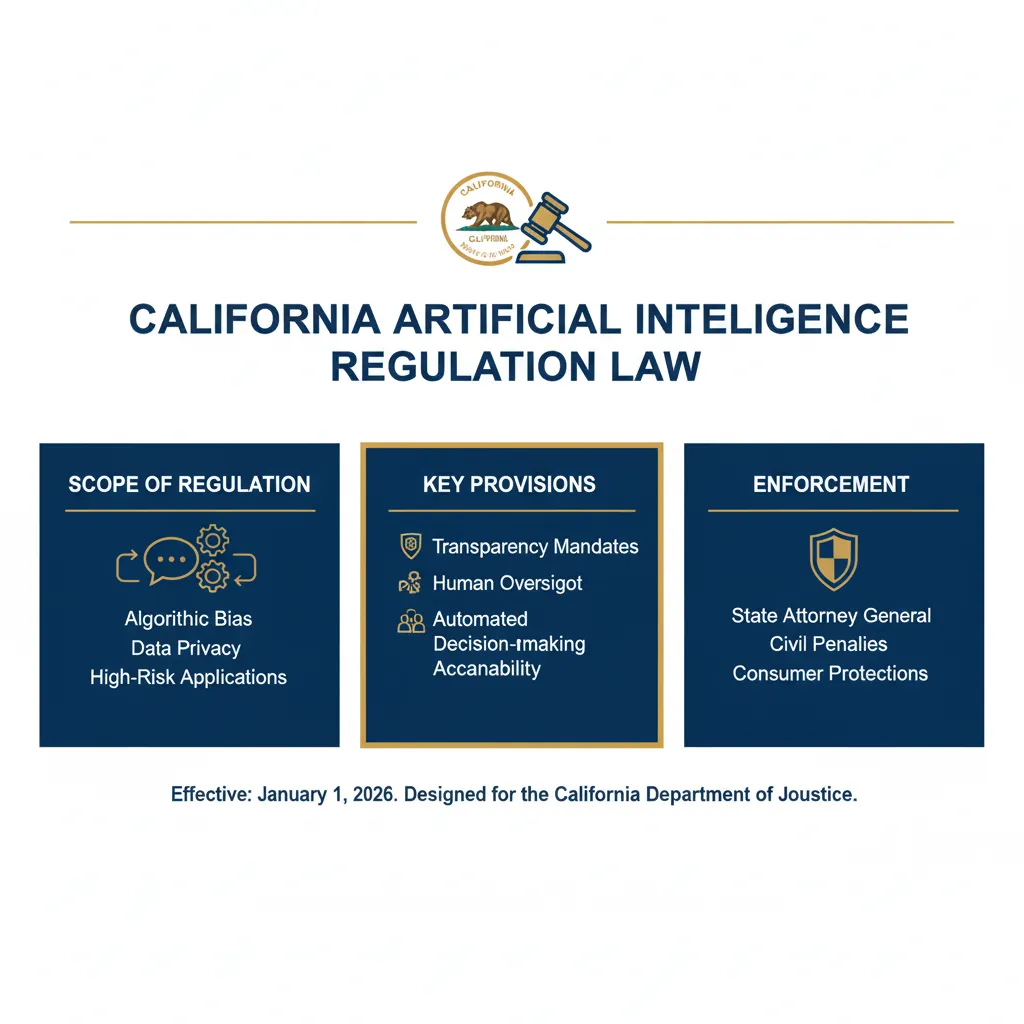
California Creates Private Lawsuits Against AI Chatbots ⚠️
California enacted the first AI chatbot law with private right of action (October 13), targeting “AI companion chatbots.” Companies can now face individual lawsuits from consumers claiming harm, not just state enforcement. The law focuses on chatbots designed for emotional connection rather than task completion.
Why it matters: This fundamentally changes AI liability. Previously, only state attorneys general could sue for violations. Now, any California user alleging harm from AI companion interactions can file suit. The FTC simultaneously announced an investigation into seven companion chatbot companies regarding children’s mental health impacts.
Reality check: The law specifically targets “companion” chatbots (Character.AI style) rather than productivity tools (ChatGPT, Claude). However, the definition of “companion” remains fuzzy. If your team uses ChatGPT for emotional support advice or therapy suggestions, you might unintentionally cross into regulated territory. This creates a chilling effect: developers may overfilter to avoid potential litigation, making AI assistants less useful. Nevada, Illinois, and New York passed similar mental health AI restrictions in 2025, suggesting a nationwide trend rather than California outlier.
Claude Haiku 4.5: Near-Frontier Speed at One-Third the Cost 📅
Anthropic released Claude Haiku 4.5, delivering Claude Sonnet 4-level coding performance at one-third the cost and twice the speed. Pricing sits at $1/$5 per million tokens (input/output), making it attractive for high-volume applications. The model even surpasses Sonnet 4 at computer use tasks.
Why it matters: Five months ago, Claude Sonnet 4 was state-of-the-art. Today, a cheaper, faster model matches its quality. This speed of improvement benefits developers needing real-time responses for customer service, pair programming, or rapid prototyping. Cost-sensitive deployments can now access near-frontier capabilities without enterprise budgets.
Reality check: “Near-frontier” isn’t “frontier.” Haiku 4.5 achieves 90% of Sonnet 4.5’s performance in Augment’s agentic coding evaluation, meaning it will occasionally miss nuances. For production use cases requiring absolute accuracy, Sonnet 4.5 remains the better choice despite higher costs. Anthropic’s safety evaluations show Haiku 4.5 as their safest model yet by some metrics, though this could indicate over-cautiousness leading to false refusals. See our Claude performance benchmarks for detailed comparisons.
GM Brings Gemini to Cars Starting 2026 📅
General Motors announced Google Gemini-powered AI assistants for vehicles starting next year. The over-the-air update will reach 2016+ model years, offering maintenance alerts, route suggestions, and feature explanations. GM plans to eventually develop custom AI “fine-tuned to your vehicle.”
Why it matters: Your car becomes a conversational AI platform. Instead of hunting through owner’s manuals for “what does this warning light mean,” you’ll ask aloud and get answers. The maintenance prediction capability could catch problems before they become expensive repairs. GM’s promise to access vehicle data means genuinely useful suggestions rather than generic responses.
Reality check: GM has a troubled history with ambitious tech promises. They killed “Ultra Cruise” (95% autonomous driving due in 2023), folded Cruise robotaxi, and walked back 2030 revenue doubling goals. Treat this announcement as “we’re working on it” rather than “it’s definitely happening.” Privacy concerns loom large – GM previously sold customer driving data to insurance brokers. Executive David Richardson promised data goes toward product improvement only, but skepticism is warranted. The “fine-tuned” custom AI remains vaporware with no timeline.
Google Releases Veo 3.1 for Video Generation 📅
Google launched Veo 3.1 in the Gemini app for Pro subscribers (rolling to Free users soon). The video generation model creates clips with improved textures, camera control, dialogue, and synchronized sound effects. Canvas feature now generates full slide decks from topics or uploaded sources.
Why it matters: Video generation finally feels production-ready for concept development and storyboarding. The synchronized audio represents significant technical progress – previous AI video felt silent and eerie. Canvas slide generation competes directly with PowerPoint’s Designer, potentially saving hours on presentation prep.
Reality check: “True-to-life textures” still means “obviously AI-generated upon close inspection.” Useful for mockups and brainstorming, not for finished marketing materials. The model generates short clips (typically under 10 seconds), making longer video projects tedious to assemble. Sound synchronization works well for obvious effects (footsteps, door slams) but struggles with subtle ambient audio. For comparison with other AI image tools, see our Gemini image editing analysis.
Salesforce and Anthropic Expand Partnership for Regulated Industries 🤔
Salesforce and Anthropic announced major partnership expansion (October 14), making Claude available in Agentforce for financial services, healthcare, and cybersecurity. CrowdStrike and RBC Wealth Management are using Claude via Amazon Bedrock within Salesforce’s trust boundary. The integration will bring Claude for Financial Services into Agentforce Financial Services.
Why it matters: This addresses the “where does my sensitive data go” problem plaguing AI adoption in regulated industries. Running Claude within Salesforce’s existing compliance infrastructure means banks and hospitals can use frontier AI without new security reviews. RBC Wealth Management reports Claude helps advisors with their “most time-consuming task: meeting prep.”
Reality check: “Available in Agentforce” doesn’t mean “included in your current Salesforce subscription.” Pricing details remain murky, and regulated industries should expect premium costs. The partnership announcement emphasizes future plans more than current capabilities – watch for the difference between “will enable” and “currently enables” in the press release. Salesforce’s previous AI initiatives (Einstein GPT, etc.) promised transformation but delivered incremental improvements.
Deep Dive: OpenAI’s For-Profit Pivot Reshapes AI Power Dynamics
What Changed
On Tuesday, October 28, OpenAI completed its transformation from nonprofit-controlled entity to for-profit public benefit corporation. Microsoft secured a 27% equity stake valued at $135 billion, the OpenAI Foundation retained 26%, and the remaining shares distributed among investors and employees. Delaware and California attorneys general approved the restructuring after nearly a year of review, ending uncertainty that had clouded the company since November 2023’s board crisis.
The deal includes three critical components: Microsoft gets guaranteed access to OpenAI’s models through 2032 (including AGI-level systems verified by independent experts), OpenAI committed to purchasing $250 billion in Azure cloud services, and restrictions on both companies loosened – Microsoft can pursue AGI independently while OpenAI can partner with other cloud providers.
The Numbers
- $135 billion: Valuation of Microsoft’s 27% stake
- $500 billion: OpenAI’s total valuation in October 2025 share sale
- $250 billion: OpenAI’s commitment to Azure cloud purchases
- $12 billion: Annualized revenue (July 2025 report)
- $8 billion: Projected 2025 losses despite revenue growth
- $115 billion: Expected total spending through 2029 (revised upward from $35B)
- 20 million: Paid ChatGPT subscribers (April 2025)
- 5 million: Business users
Reality Check
This restructuring solves OpenAI’s governance crisis but creates new financial sustainability questions. The company loses money on even its $200/month ChatGPT Pro tier according to CEO Sam Altman, with some power users costing more to serve than they pay. The revised spending projections ($115B through 2029 vs. previous $35B estimate) suggest either dramatically higher infrastructure costs or significant business model problems.
The independent AGI verification requirement represents a clever compromise: it prevents Microsoft from claiming AGI prematurely to escape revenue sharing (OpenAI continues sharing 20% of revenue until AGI) while giving Microsoft genuine access to breakthrough systems. However, “AGI” remains undefined, creating future disputes about when this milestone arrives.
The Competition
Anthropic raised $40 billion in April 2025 at a $300 billion valuation, remaining private and nonprofit-governed. Google’s DeepMind operates within Alphabet’s structure, avoiding independent financial pressure. This makes OpenAI’s for-profit conversion a unique experiment: can an AI lab maintain research integrity under direct profit pressure and Microsoft’s influence?
What This Means for You
If you use ChatGPT: Expect continued reliability and performance improvements backed by Microsoft’s infrastructure. However, prepare for pricing pressure as OpenAI faces profitability demands. The current generous free tier may shrink.
If you build on OpenAI’s API: The Azure commitment guarantees infrastructure investment benefiting API reliability and speed. However, Microsoft’s 27% stake and exclusive Azure relationship make OpenAI less independent. Consider diversifying to Anthropic or Google as backup options.
If you’re an enterprise customer: The 2032 model access guarantee provides planning certainty. Budget for potential price increases as OpenAI faces profitability pressure. The $115 billion spending projection suggests either transformational products coming or serious unit economics problems.
If you’re an AI industry observer: This restructuring represents capitalism absorbing a nonprofit AI safety experiment. The question becomes: can for-profit incentives and safety research coexist, or will quarterly pressure inevitably compromise caution? The next 12 months will reveal whether OpenAI’s “responsible scaling policy” survives Microsoft’s growth expectations.
Skip This: Overhyped News
“Gemini 3.0 Launching October 22”
Marketing says: Leaked internal documents showed Google would announce Gemini 3.0 on October 22, potentially bringing breakthrough capabilities to compete with GPT-5.
Reality: October 22 came and went with no Gemini 3.0 announcement. The “leaked” document came from an unverified Twitter source with no track record. Google has not confirmed Gemini 3.0’s existence, timeline, or capabilities. This represents pattern recognition at work: media amplifies any Google AI rumor because “Gemini 3.0” generates clicks regardless of credibility.
Verdict: Skip it until official announcement. The leak’s authenticity remains questionable, and Google’s actual October releases (Veo 3.1, Canvas updates) went relatively unnoticed while everyone chased the phantom Gemini 3.0.
“AI Will Replace All [Insert Job Title]”
Marketing says: Various headlines this week claimed AI would “replace accountants,” “eliminate coders,” and “end creative work as we know it.” The claims reference the same AI tools (Claude, ChatGPT, Copilot) we’ve had for months.
Reality: The tools got incrementally better (Claude in Excel, Copilot’s Mico avatar), not revolutionarily different. No job category faced sudden obsolescence this week. What actually happened: existing tools became more embedded in workflows, requiring workers to adapt skills rather than face replacement. The accountant using Claude for Excel outperforms both the accountant rejecting AI and the AI working alone.
Verdict: Ignore the headlines. Focus on learning how AI tools augment your specific work rather than worrying about wholesale replacement. Every “AI will replace X” article recycles the same arguments from 2023 without acknowledging that predicted job losses haven’t materialized.
Community Pulse
Reddit’s Take
The OpenAI restructuring dominated r/artificial and r/OpenAI this week with skepticism about long-term implications. Top comments focused on the $115 billion revised spending projection: “They went from $35B to $115B in estimates. Either they discovered AGI requires WAY more compute or their unit economics are catastrophically broken.” Another highly-upvoted thread questioned the AGI verification process: “Who decides when AGI is achieved? This creates massive incentive for Microsoft to lowball the benchmark.”
Claude’s Excel integration sparked interest in r/ClaudeAI but also frustration: “Excited about Claude in Excel. Disappointed it’s limited to enterprise financial services subscription. Why can’t Max subscribers access this?” The pricing gatekeeping mirrors broader community frustration with AI companies launching features exclusively for enterprise while consumer tiers stagnate.
Microsoft’s Mico avatar received mixed reactions. Some found it “delightfully adorable” while others called it “the Clippy of 2025 – nobody asked for this.” The group chat feature generated more genuine excitement: “Finally! Using AI for team projects without awkward screen sharing.”
Twitter/X Sentiment
Developer discussions focused on Claude Haiku 4.5’s price-performance ratio. Independent benchmarks circulated showing Haiku 4.5 achieving 90% of Sonnet 4.5’s quality at one-third the cost, sparking optimization discussions. Several developers reported migrating high-volume applications from GPT-4 to Haiku 4.5, claiming 60%+ cost reductions with minimal quality loss.
The California AI chatbot law triggered heated debate. Privacy advocates celebrated the private right of action, while AI developers warned of chilling effects. One influential ML researcher noted: “This law will make every AI company overfilter to avoid litigation. We’re trading innovation for perceived safety theater.” Counter-arguments emphasized that Character.AI and similar platforms needed accountability after parents filed lawsuits alleging harm to children.
What Creators Are Saying
YouTube tech channels largely ignored the OpenAI restructuring (too “inside baseball”) while focusing on consumer-facing updates. Reviews of Copilot’s Mico avatar ranged from “surprisingly helpful” to “turn it off immediately.” The consensus: useful for voice interactions, distracting for text-based work.
Google’s Veo 3.1 video generation received lukewarm reception. Creators tested it against Runway and other AI video tools, finding Veo excels at concept development but lacks the refinement for finished content. The synchronized audio impressed reviewers more than visual quality improvements.
Next Week: What to Watch
November 1: OpenAI’s Agent Builder pricing begins (announced but not yet implemented). Developers should test the platform before costs activate to understand budgetary impact.
Early November: GitHub Universe typically brings Copilot announcements. Expect integration updates and potentially pricing changes given GitHub’s recent feature velocity.
Pattern Recognition: Microsoft’s Ignite conference (November 18-22) often sees pre-event leaks. Watch for Copilot Studio and Azure AI announcements in the week leading up.
Regulatory Deadlines: Several states have AI legislation taking effect January 1, 2026. Expect companies to announce compliance measures in November-December rather than waiting until deadline week.
Financial Pressures: OpenAI’s revealed $115 billion spending projection suggests price increases likely in Q4 2025 or Q1 2026. Monitor for “value-added features” messaging that typically precedes price hikes.
This Week’s Bottom Line
This week exposed the tension between AI innovation and AI industrialization. OpenAI’s for-profit conversion represents the industry maturing from research lab to Microsoft subsidiary, trading flexibility for financial backing. Claude’s Excel integration and Copilot’s personality upgrade show the opposite trend: AI becoming invisible infrastructure embedded in existing tools rather than standalone products.
The key question isn’t “which AI model is best” anymore. It’s “where will AI live?” Microsoft bets on Copilot as universal assistant. Anthropic positions Claude as industry-specific co-pilot. OpenAI aims for platform dominance through APIs and agents. All three strategies acknowledge the same truth: nobody wants another app. They want AI embedded where they already work.
California’s chatbot law hints at coming regulatory reality. The “move fast and break things” era ends when breaking things creates private lawsuits. Expect AI companies to shift from “build first, ask permission later” to “build cautiously, avoid litigation always.” This conservatism may protect users while slowing innovation – the perennial tradeoff.
For professionals using AI tools: diversify your dependencies. OpenAI’s restructuring, while approved by regulators, reveals financial fragility masked by impressive revenue growth. Claude’s enterprise focus creates access barriers. Google’s silence on Gemini 3.0 suggests competitive pressure. No single vendor offers safety. The question for next week: will anyone announce price increases to address profitability, or will the subsidy party continue through year-end?
Learn more about the AI tool landscape in our AI News hub.
Stay Updated on AI’s Biggest Shifts
Don’t miss the next industry restructuring. Get AI Weekly delivered every Thursday at 9 AM EST with the week’s most important developments, honest reality checks, and tools you can actually use.
- ✅ No hype filtering: We separate breakthrough from marketing noise
- ✅ Honest reality checks: Marketing claims vs. actual experience
- ✅ Regulatory alerts: Laws affecting your AI usage
- ✅ Price drop notifications: Save money on tools you’re already paying for
- ✅ 5-minute read: Respect your time, deliver what matters
Free forever. Unsubscribe anytime. 10,000+ professionals trust us.
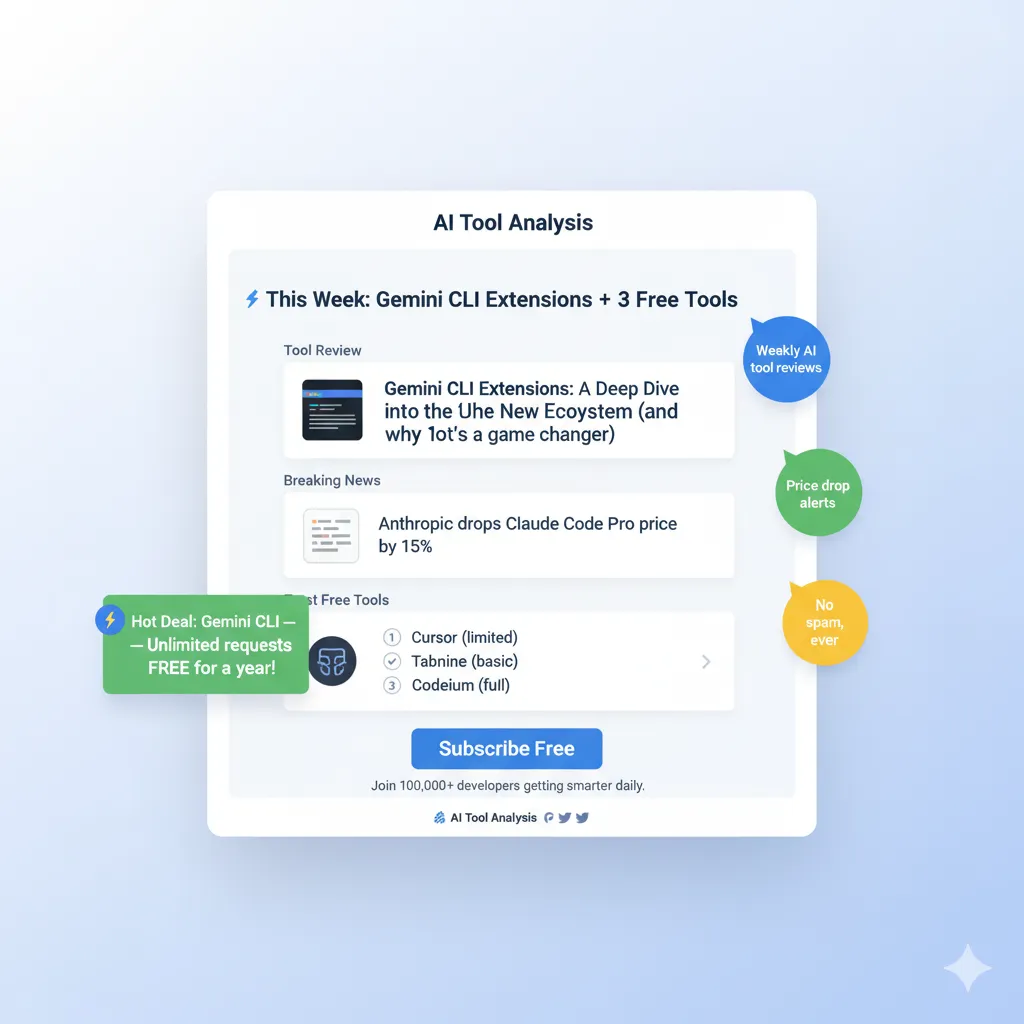
Last Updated: October 30, 2025
Next Weekly Roundup: Thursday, November 6, 2025 at 9 AM EST
Coverage Period: October 23-29, 2025
Have a tool you want us to review? Suggest it here | Questions? Contact us
